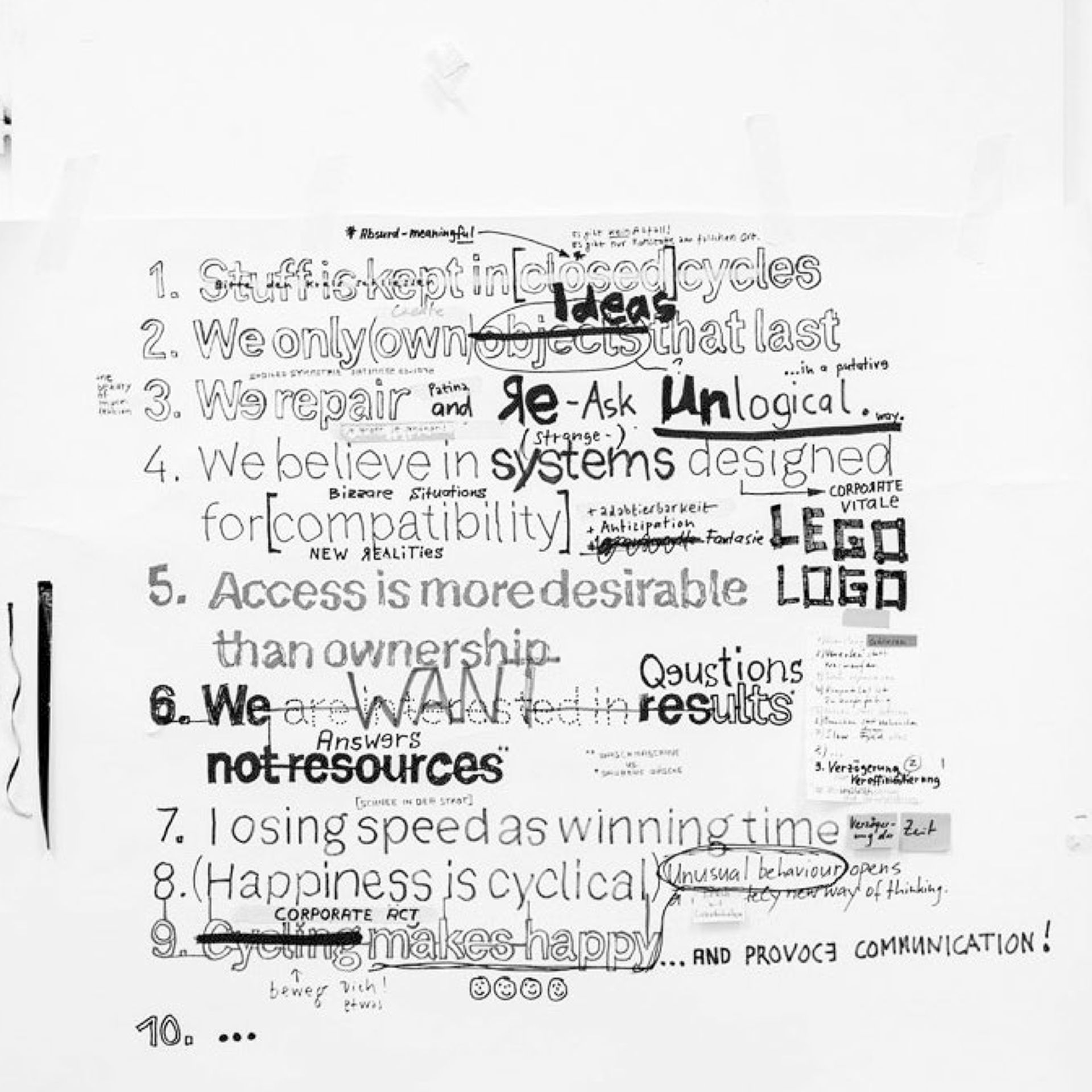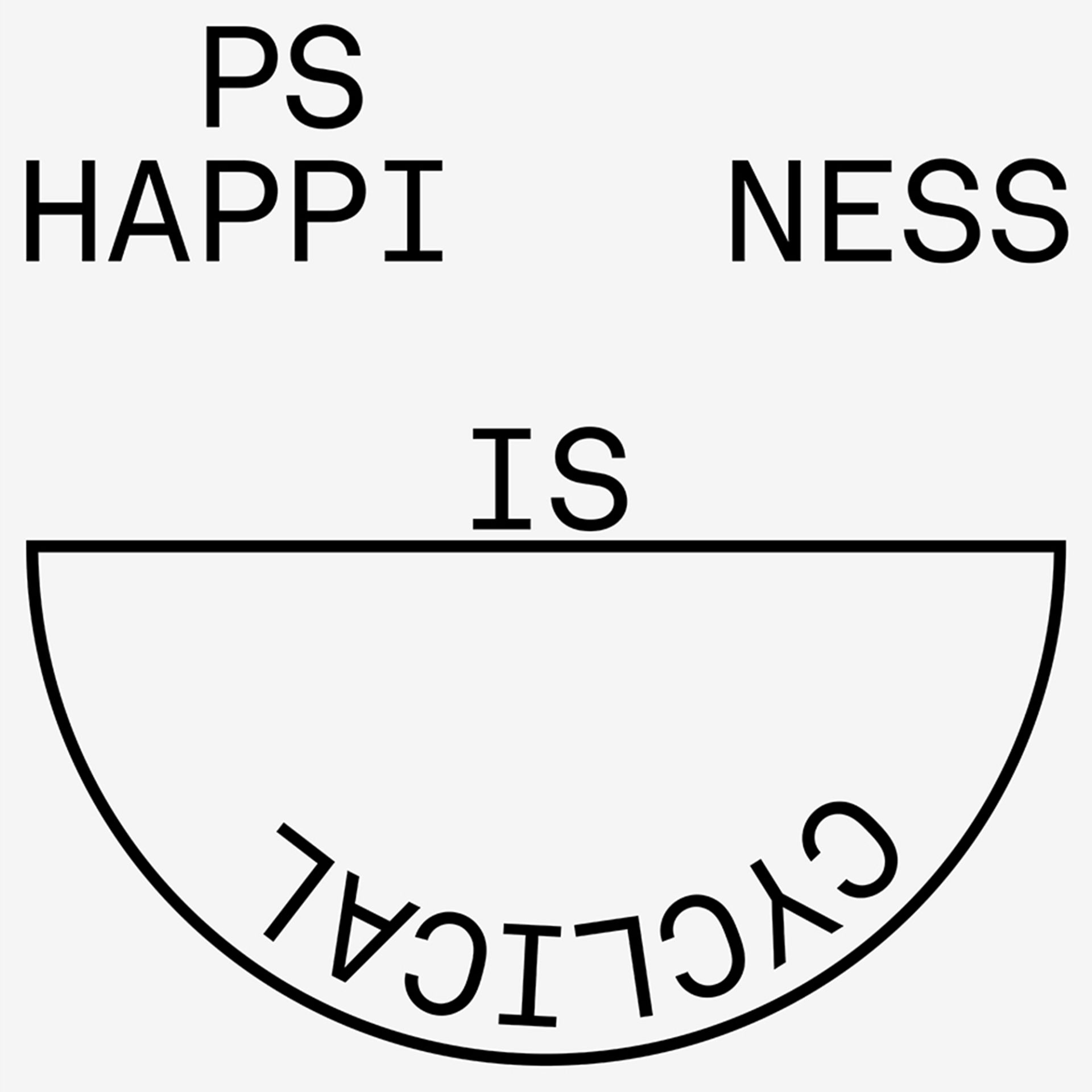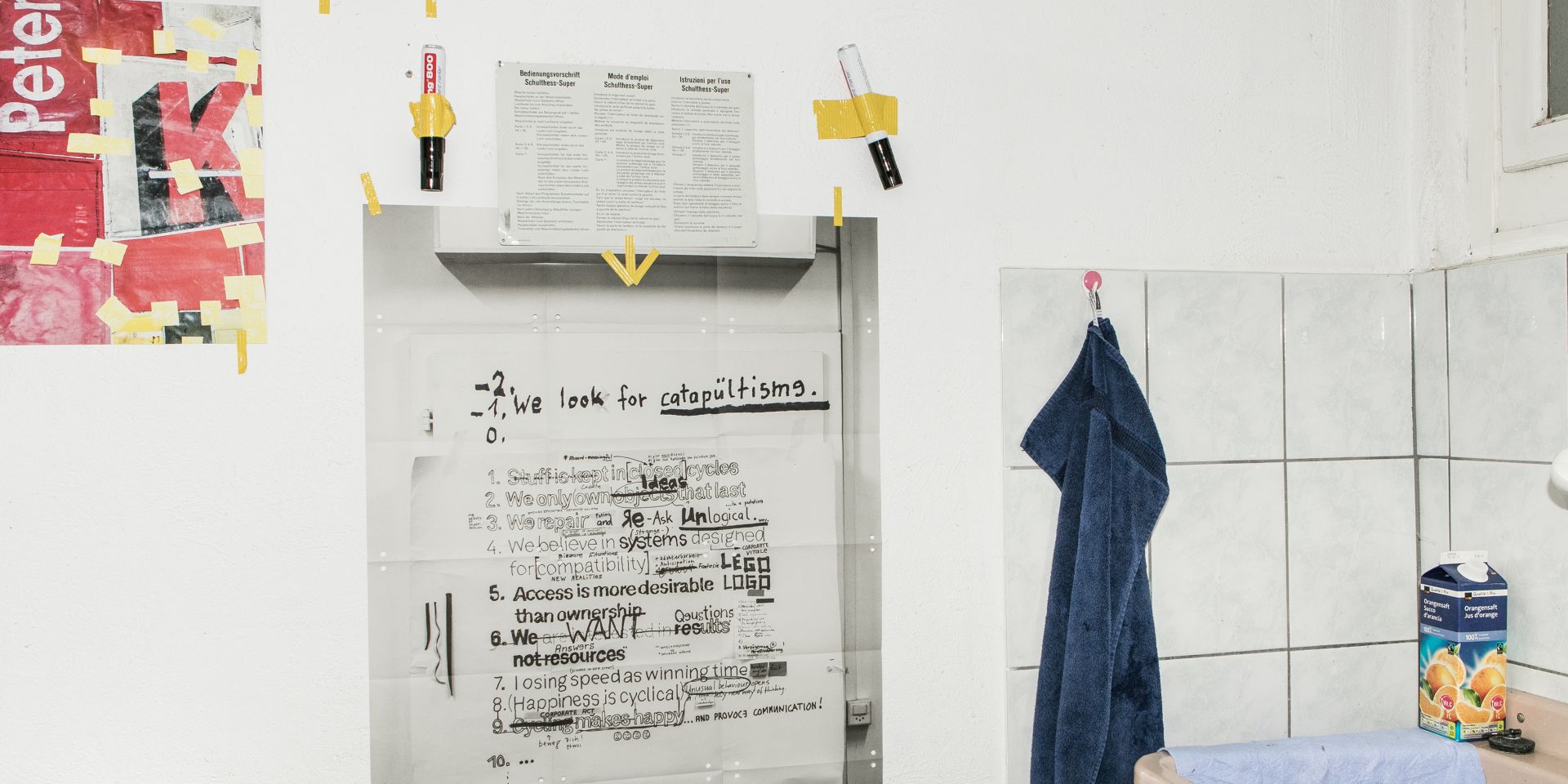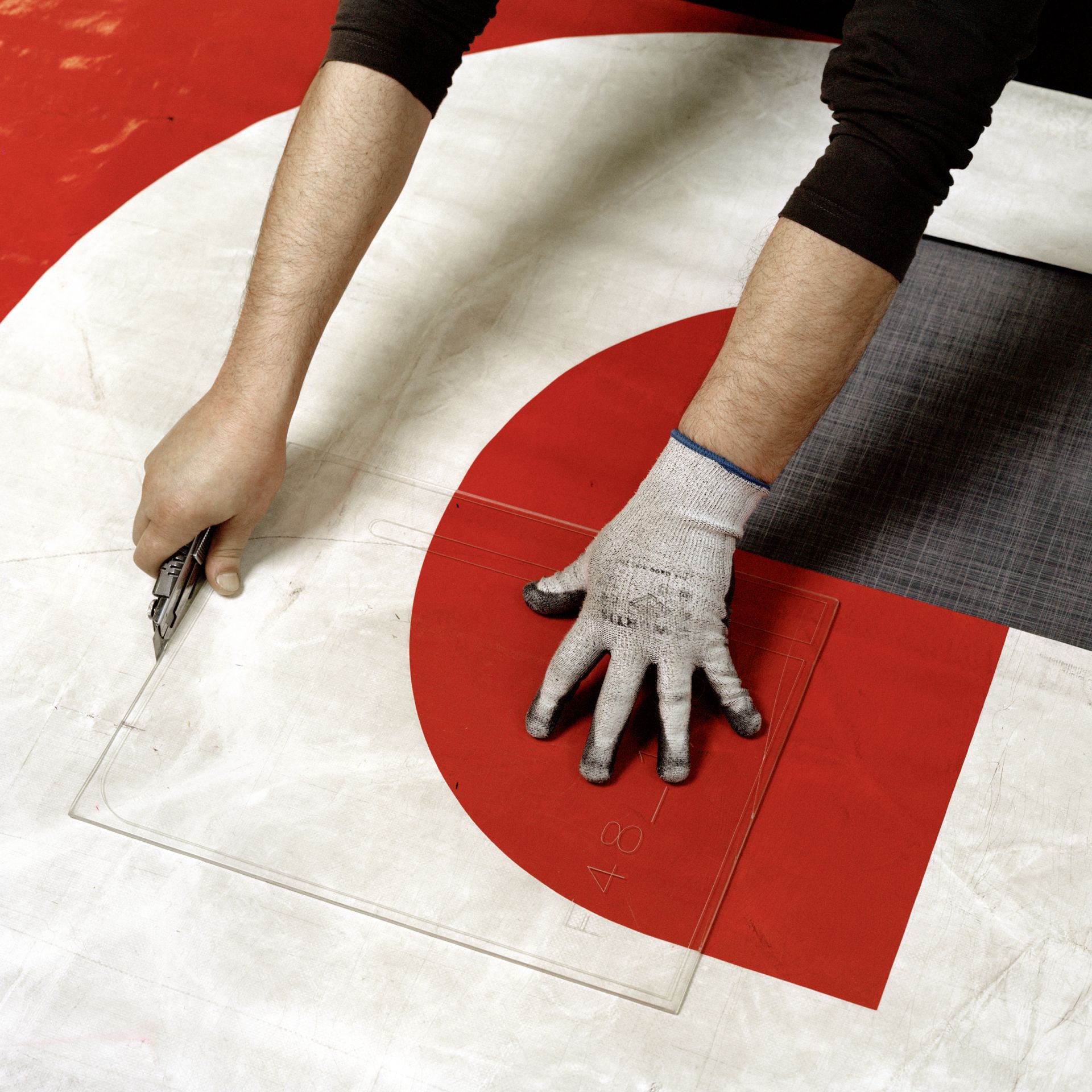
Our manifesto encourages consumers and producers in the 21st century to adopt a new, proactive attitude and break out of their self-inflicted marginalization.
GUIDELINE
The manifesto came into being in October 2015 as part of the «FREITAG Ad Absurdum» exhibition at the mudac (Musée de design et d'arts appliqués contemporains) in Lausanne. Working with twin-brother artists Frank and Patrik Riklin, the Freitag brothers conceived an exhibition about the attitude behind FREITAG. They made this attitude visible by taking the FREITAG value chain to absurdity.
Created as an appeal for conscious, sensible consumption in our time, the FREITAG Manifesto is the guideline by which we now think and act, cooperate, develop products, produce, distribute, package, sell, etc., etc., etc.
Even if we can never fully satisfy these seven and a half points in all their radical simplicity, we will never give up on narrowly missing them.


#1 WE KEEP THINGS IN CLOSED CYCLES
Even we consume resources. But as long as they are sustainably produced, renewable and biodegradable or are managed in closed material cycles, there is no depletion. We are aware of these cycles and adapt our consumption accordingly.
We were ahead of our time with our compostable F-ABRIC workwear; the Take-Back system means our smartphone sleeves are already circular. The circular Mono[PA6] Backpack is our latest milestone and can be recycled again and again. We are also working flat out on a circular truck tarp.
#2 WE OWN DURABLE ITEMS
We do not wish to demonize ownership. But the objects we make are of such high quality that you can lend them to your neighbors and pass them on down through the generations.
Our bags are pretty well-known for their sturdiness and durability. Even if something unfortunate happens, you can have them repaired. And if you have a FREITAG product that’s still alive and kicking but your affection for it has flown out the window, you can always exchange it for another at S.W.A.P.


#3 WE REPAIR
That’s because our products are easy to look after and made of materials that age beautifully. What’s more, they’re even more desirable after years of use.
To see how, where and why we repair, head to our repair overview.
#4 WE CARE ABOUT COMPATIBILITY AND ADAPTABILITY
The use of modular design and detachable connecting pieces results in sustainable, expandable systems and expands life cycles.
Good examples of this are the bag presentation and storage systems in all our stores. Others include our spare parts, which you can obtain for free at all FREITAG stores or online, the agenda and notebook with their fully compatible Atoma ring systems or the CIRC-CASE system, consisting of the F385 CIRC-CASE and the F380 JUSTIN.


#5 WE WANT ACCESS, NOT OWNERSHIP
Access over ownership: for us, being able to use things is more important than owning them. Especially stuff you only need now and then.
Travel bags are a great example. That's why we created FREITAG RENT. Our rental service for our biggest travel backpack, the F512 VOYAGER, is a low-barrier, low-impact alternative to owning bulky luggage. FREITAG RENT is available at all FREITAG Stores worldwide. You can also rent practical cargo bikes at the FREITAG Stores in Kyoto and Zurich Grüngasse as well as our Flagship Store in Zurich.
#6 WE PAY FOR RESULTS, NOT RESOURCES
A willingness to pay for services rather than products is an opportunity for sustainable service providers.
In this area, too, we’re working towards greater sustainability.


#7 WE LOSE SPEED TO WIN TIME
If you don't take time, you’ll never have any. That’s why FREITAG products are timeless: well thought-out and matured until they’re ripe for their market launch. Take the most recent example: the development of our first circular, fully recyclable backpack took four years from the initial sketch to the launch.
Time at FREITAG
F-ABRIC, a workwear line grown and produced in Europe, is also 100% compostable and a prime example of what could be called slow fashion. Similarly, the process of making bags for cyclists from truck tarps is a form of deceleration. And, last but not least, many of our models have evolved so distant from short-lived trends that they’ve remained in our range, virtually unchanged, for many years.
The same applies to classic FREITAG products made from used truck tarps: However, although they give discarded materials a second, long life, we can’t keep them in circulation forever. In short, at the end of their lives, they end up in the trash.
#8 …
We are aware that a manifesto can only be a snapshot, a moment in time, and that it can – no, must – always be enhanced and further developed.


PS: HAPPINESS MOVES IN CIRCLES
Happiness is alsocircular. And it multiplies only when it is passed on.
So, going beyond bags, we are still trying to make you and ourselves happier in the long term. We’ve tried it with education and with our happiness heroes. And who knows what lies ahead...
FREITAG AD ABSURDUM
The starting point for the Ad Absurdum tour was a carte blanche from the mudac (musée de design et d'arts appliqués contemporains) in Lausanne. To conjure up an image of the attitude behind bags and special assignments, the Freitag brothers and two concept artists – the Riklin twins – took FREITAG bag production processes to the point of absurdity. They collected old FREITAG bags and turned them back into truck tarps, which they then reconverted into bags. You could call it re-re-recycling.
By transforming the FREITAG value chain into an absurdity, the brothers emerged with a totally serious manifesto addressing consumer attitudes in the 21st century. The result is the FREITAG Manifesto of today. It is a plea for a circular economy, for quality and longevity, and locates happiness in questioning the fast pace of our times.
THE 2015 LAUNDRY ROOM TOUR
From September 18 to 21, 2015, the Freitag brothers and the Riklin twins toured Switzerland together. Part of their luggage was «FREITAG Ad Absurdum», an exhibition illustrating what they believe in and why. They exhibited it in laundry rooms put at their disposal by «curators of everyday life».
The «FREITAG Ad Absurdum» exhibition attracted friends, neighbors and strangers to the places where Simone, Heinz and Luc usually hang their laundry to dry. These three had competedwith their laundry rooms and curated the exhibition for the Freitag brothers and the Riklin twins.






